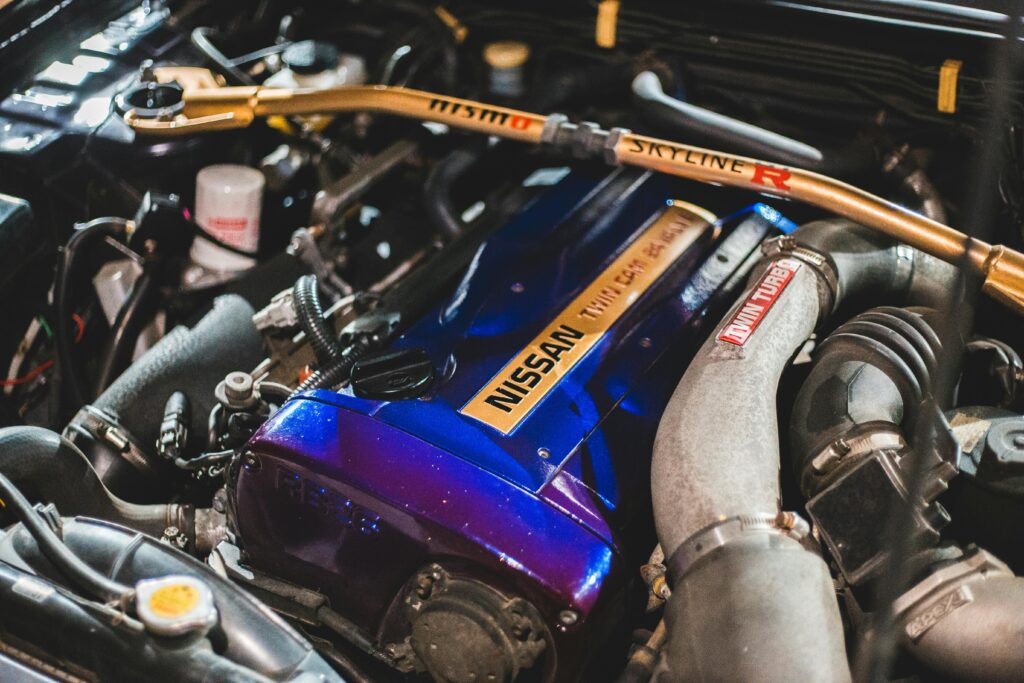Are Lincoln Engines All Subject to Water Pump Destruction,Lincoln vehicles are well-known for their luxury, comfort, and performance. However, like any other car brand, they can experience issues that might worry potential buyers or current owners. One of the most discussed topics among Lincoln owners and car enthusiasts is whether Lincoln engines are prone to water pump destruction. This article will explore the relationship between Lincoln engines and water pump issues, addressing concerns and providing helpful insights.
Understanding the Water Pump’s Role in a Lincoln Engine
Before diving into the specific issues, it’s essential to understand what a water pump does in a Lincoln engine.Are Lincoln Engines All Subject to Water Pump Destruction. The water pump is a critical component in the cooling system of an internal combustion engine. Its primary job is to circulate coolant through the engine block, radiator, and hoses to maintain an optimal operating temperature. By keeping the engine cool, the water pump prevents overheating, which can lead to significant engine damage.
Why Is the Water Pump So Important?
The water pump ensures that the engine operates within the proper temperature range.Are Lincoln Engines All Subject to Water Pump Destruction. If the engine gets too hot, it can cause components to expand, warp, or fail altogether. Overheating can lead to blown head gaskets, cracked engine blocks, and other severe issues. Therefore, the water pump is vital to the longevity and performance of any vehicle, including Lincoln cars.
The Lincoln Engine Lineup
Lincoln, as a luxury division of Ford, offers a range of engines in its vehicles.Are Lincoln Engines All Subject to Water Pump Destruction. These engines are designed to provide power, efficiency, and smooth driving experiences. However, like any mechanical system, they are not immune to problems.
Common Lincoln Engines
Some of the most common engines used in Lincoln vehicles include the 3.5L EcoBoost V6, the 2.7L EcoBoost V6, and the 5.0L V8. These engines are known for their power and reliability, but they have also been subject to scrutiny, particularly regarding water pump longevity.
Water Pump Issues in Lincoln Engines
One of the main concerns surrounding Lincoln engines, particularly the EcoBoost V6 engines, is the potential for water pump failure. Unlike traditional external water pumps, some Lincoln engines use an internal water pump design. This design integrates the water pump into the engine block, which can create significant challenges if the pump fails.
Internal Water Pump Design: A Double-Edged Sword
The internal water pump design has its advantages, such as reduced noise and a more compact engine layout. However, it also comes with a significant drawback: when the water pump fails, it can leak coolant into the engine’s oil system. This contamination can lead to catastrophic engine failure if not addressed quickly.
Signs of Water Pump Failure
Owners of Lincoln vehicles should be aware of the signs of a failing water pump. These signs can include:
- Coolant leaks: If you notice coolant pooling under your vehicle or a drop in coolant levels, it could indicate a water pump issue.
- Overheating: If your engine temperature gauge consistently reads higher than normal, it might be due to a failing water pump.
- Unusual noises: A failing water pump can produce a whining or grinding noise, particularly from the front of the engine.
- Oil contamination: If coolant has leaked into the oil, you might notice a milky or frothy appearance on the oil dipstick.
The Risk of Engine Damage
If a Lincoln engine’s water pump fails and coolant mixes with the engine oil, it can cause significant damage. The contaminated oil can lead to inadequate lubrication, resulting in increased friction and wear on engine components. Over time, this can cause the engine to seize, leading to costly repairs or even a complete engine replacement.Are Lincoln Engines All Subject to Water Pump Destruction.
Addressing Water Pump Concerns
While the risk of water pump failure is a valid concern, it’s essential to remember that not all Lincoln engines are destined for this issue. Regular maintenance and prompt attention to warning signs can help mitigate the risk.
Regular Maintenance: The Key to Longevity
Maintaining your Lincoln engine is crucial to avoiding water pump-related problems. Regularly checking coolant levels, inspecting for leaks, and listening for unusual noises can help you catch potential issues early. Additionally, following the manufacturer’s recommended maintenance schedule for coolant system flushes and inspections can prolong the life of your water pump.Are Lincoln Engines All Subject to Water Pump Destruction.
Choosing the Right Mechanic
If you suspect a problem with your Lincoln’s water pump, it’s essential to choose a mechanic who is experienced with Lincoln engines. Replacing an internal water pump is a complex task that requires expertise and the right tools. A skilled mechanic can diagnose the issue accurately and perform the necessary repairs to prevent further damage.
Preventive Measures for Lincoln Owners
While not all Lincoln engines will experience water pump failure, there are steps you can take to reduce the risk:
- Stay on top of coolant maintenance: Regularly check and replace your coolant as needed. Old or contaminated coolant can contribute to water pump wear and tear.
- Watch for early warning signs: Pay attention to any changes in your vehicle’s performance, such as unusual noises, overheating, or coolant loss.
- Consider preventive replacement: If you own a Lincoln with an internal water pump and your vehicle is approaching higher mileage, you might consider having the water pump replaced as a preventive measure. This can be expensive, but it could save you from more costly repairs down the road.Are Lincoln Engines All Subject to Water Pump Destruction.
Case Studies: Lincoln Water Pump Experiences
To provide a better understanding of the potential risks, let’s look at a few case studies of Lincoln owners who have dealt with water pump issues.
Case Study 1: Lincoln MKX 3.5L EcoBoost V6
One owner of a Lincoln MKX with the 3.5L EcoBoost V6 engine reported that their vehicle began to overheat unexpectedly. After taking it to the mechanic, they discovered that the internal water pump had failed, and coolant had leaked into the oil system. Fortunately, the owner caught the issue early, and the mechanic was able to replace the water pump before significant engine damage occurred.
Case Study 2: Lincoln Navigator 3.5L EcoBoost V6
Another owner of a Lincoln Navigator experienced similar symptoms: overheating and coolant loss. Unfortunately, they didn’t catch the problem in time, and the engine suffered extensive damage due to oil contamination.Are Lincoln Engines All Subject to Water Pump Destruction. The repair bill was substantial, and the owner decided to replace the engine altogether.
Case Study 3: Lincoln Continental 2.7L EcoBoost V6
A Lincoln Continental owner with the 2.7L EcoBoost V6 engine noticed a slight coolant leak and a whining noise from the engine. A quick visit to the mechanic confirmed that the water pump was beginning to fail. The owner opted for a preventive replacement, avoiding any further complications.
Are All Lincoln Engines at Risk?
It’s important to note that while water pump issues can occur in Lincoln engines, they are not guaranteed. The likelihood of experiencing such problems depends on various factors, including maintenance practices, driving habits, and the specific engine model.
EcoBoost V6 Engines: Higher Risk
Lincoln vehicles equipped with the 3.5L and 2.7L EcoBoost V6 engines are more prone to water pump-related issues due to the internal water pump design. However, this does not mean that every engine will fail; many owners have driven their Lincolns for years without encountering any problems.
Other Lincoln Engines: Lower Risk
Lincoln models with other engines, such as the 5.0L V8 or 2.0L turbocharged inline-4, are less likely to experience water pump failures. These engines typically use external water pumps, which are easier to access and replace if needed.Are Lincoln Engines All Subject to Water Pump Destruction.
Weighing the Risks and Benefits
When considering a Lincoln vehicle, it’s essential to weigh the potential risks against the benefits. Lincoln offers luxurious, powerful vehicles that many owners enjoy without any significant issues. However, if you’re purchasing a used Lincoln with higher mileage, it’s wise to have the water pump inspected and consider a preventive replacement if necessary.
Conclusion: Navigating the Water Pump Issue
In conclusion, while some Lincoln engines, particularly those with the EcoBoost V6, are more susceptible to water pump failures, it’s not an inevitable fate for every vehicle. Understanding the role of the water pump, recognizing early warning signs, and maintaining your vehicle properly can go a long way in preventing costly repairs.
Lincoln vehicles continue to be a popular choice for drivers seeking luxury and performance. By staying informed about potential issues and taking proactive steps, you can enjoy your Lincoln with confidence, knowing that you’ve done your part to protect your engine from water pump destruction. Whether you’re a current Lincoln owner or considering purchasing one, being aware of these potential issues allows you to make informed decisions and keep your vehicle running smoothly for years to come.



